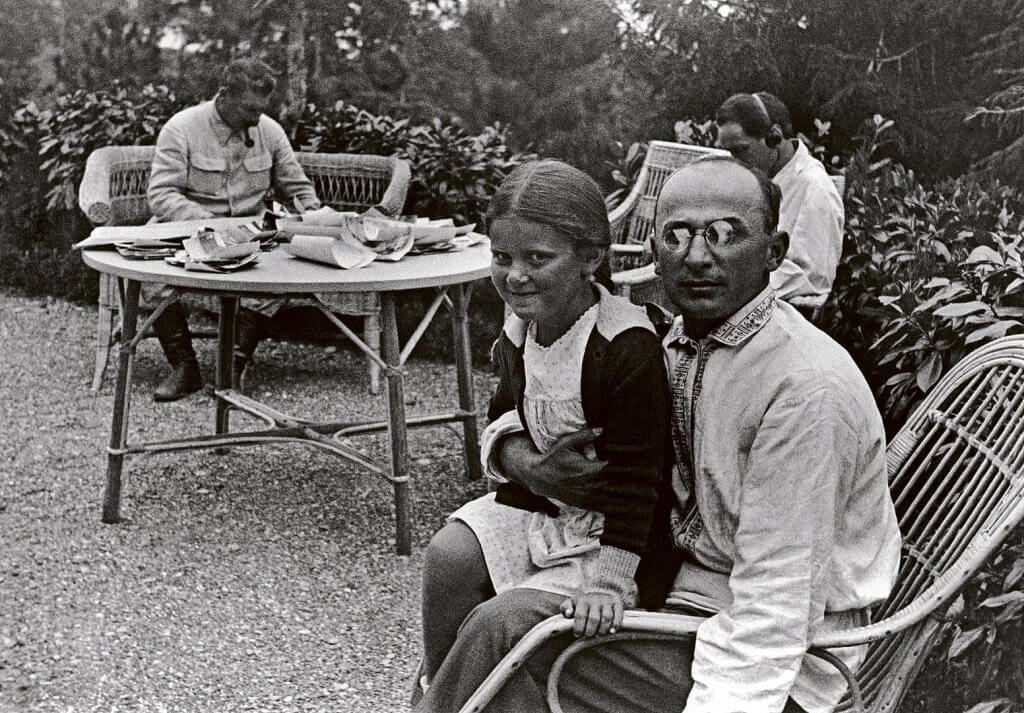Svetlana Alliluyeva’s biography shows that she was probably the only human being whose heart melted by the dreaded Josef Stalin, in fact, this happened when she was just a girl unable to establish a relationship between the loving man who played with her and the Russian. leader who had sown terror in his own territory.
This woman surprised the world in the 1960s, when she left the Soviet Union and sought asylum on the territory of her father’s main opponents: the United States.
- Since then.
- It has been used as a propaganda trophy of the famous Cold War.
- Its figure was used to discredit the regime led by his father.
“I lived my life as much as I could (?) But there was a fatality. You may not regret your fate, but I’m sorry my mother didn’t marry a carpenter?. – Svetlana Alliluyeva-
The torments and contradictions experienced by Svetlana Alliluyeva explain why she changed her name several times. He was born Svetlana Iosifovna Stalin, but then removed his father’s surname and became Svetlana Alliluyeva. She then completely changed her name and ended her life as Lana Peters.
Svetlana Alliluyeva was Staline’s only daughter. The chief’s biographers point out that only three people touched the heart of this hard-working warrior; one of them was his mother, Yekaterina Gueladze.
The other was his first wife, Ekaterina Svanidze, whom he was actually in love with, but died prematurely of tuberculosis. Stalin was never the same again after losing Ekaterina. The other source of his love was his daughter, Svetlana, with whom he played one of the cruellest men in Russian history.
Svetlana Alliluyeva was educated in the Kremlin, as if the rest of the world did not exist, living in a kind of ivory tower, completely unaware of what was going on in her city.
As was customary at the time, the one who created her was a maid, her father did not spend much time with her, but she always brought her affection, her mother, on the other hand, was more distant.
When Svetlana Alliluyeva was 6 years old, her mother died suddenly and reportedly suffered a fatal appendicitis attack.
Although the subject has always been a mystery, there is evidence to suggest that the death of Svetlana’s mother, “Nedia”, was not natural, she had been desperately in love with Stalin, but when she went to college, she was unraveled with what he was. doing with Russia.
Nedia was one of the few people who said in front of Stalin that he was an executioner. The day before his death, he had a strong public discussion with the chief; there are witnesses who claim he assaulted her in public.
The next day, she was found with a bullet in her heart in her bed. Apparently, she killed he hesit, but many do not rule out the possibility that she would be killed by her husband. Svetlana Alliluyeva was forced to believe the official version.
Growing up, Svetlana Alliluyeva began to realize that things in her country were not what she had thought before, until she was 16 years old she maintained a close and loving bond with her father, at that age Svetlana, who spoke English, had access to an article in that language, which said her mother had committed suicide.
This was the trigger for a great deal of heartlessness with whom, until then, he had been his beloved father, then fell in love with a director much older than her, Stalin did not approve of the relationship and, to end it, ordered that the man be arrested and taken to Siberia.
At the age of 19 he married, perhaps only by rebellion, and had a son, the first of four fleeting marriages in the biography of Svetlana Alliluyeva, who also had two other daughters.
When her father died, she was forbidden to talk about the chief’s private life, she had never stopped loving and hating her father at the same time. About 14 years later, he took advantage of a trip to India into the desert and left his children. , 19 and 16 years old, alone.
She arrived in the United States in April 1967 and began working as a writer. He received $3 million for his autobiography.
She remarried and had a daughter, Olga. After a new divorce and several avatars, all caused by the political shadow that was chasing her, Svetlana attempted suicide in 1991, but failed.
He died of cancer in 2011 and expressed his wish that his body would not be transported to Russia after the end of his life.

